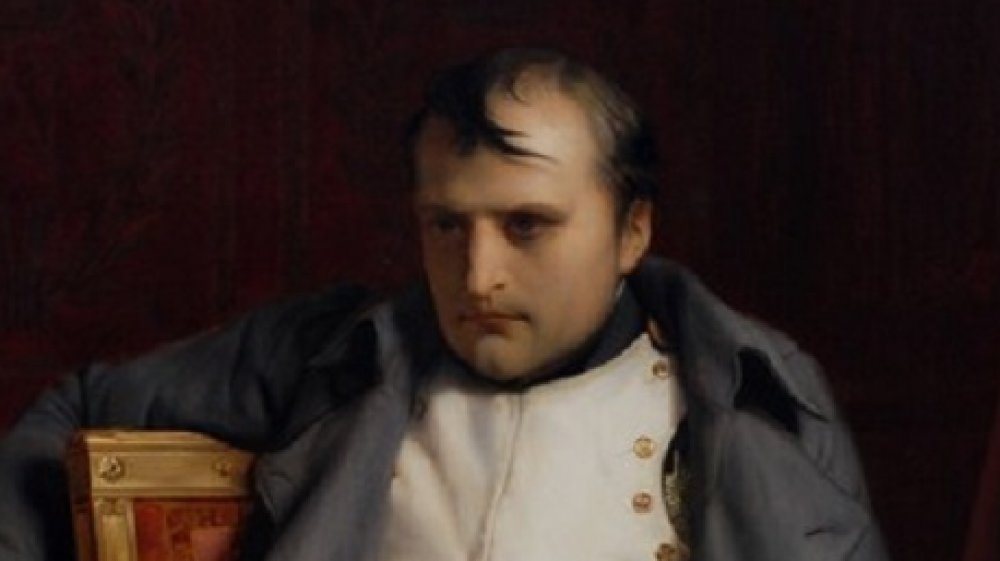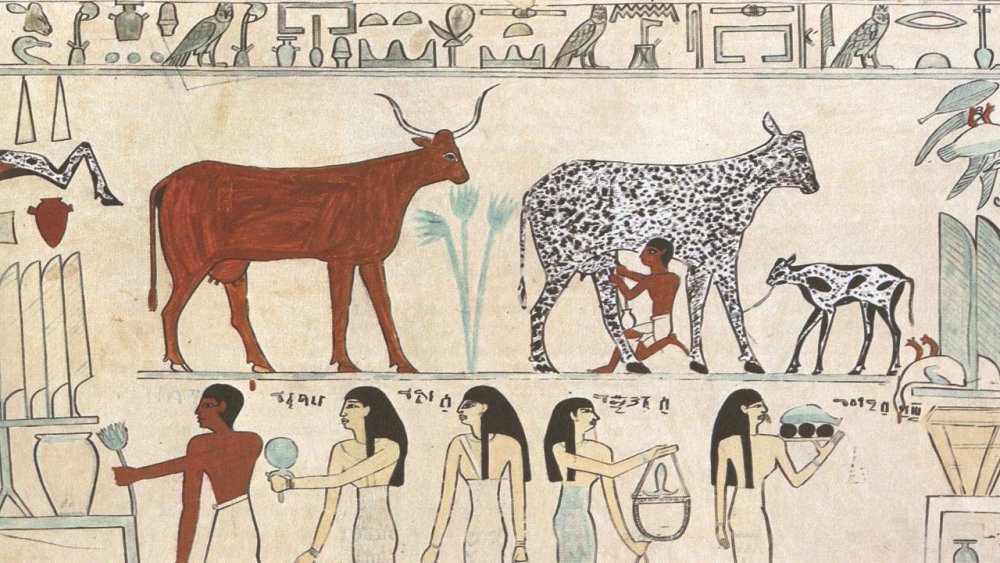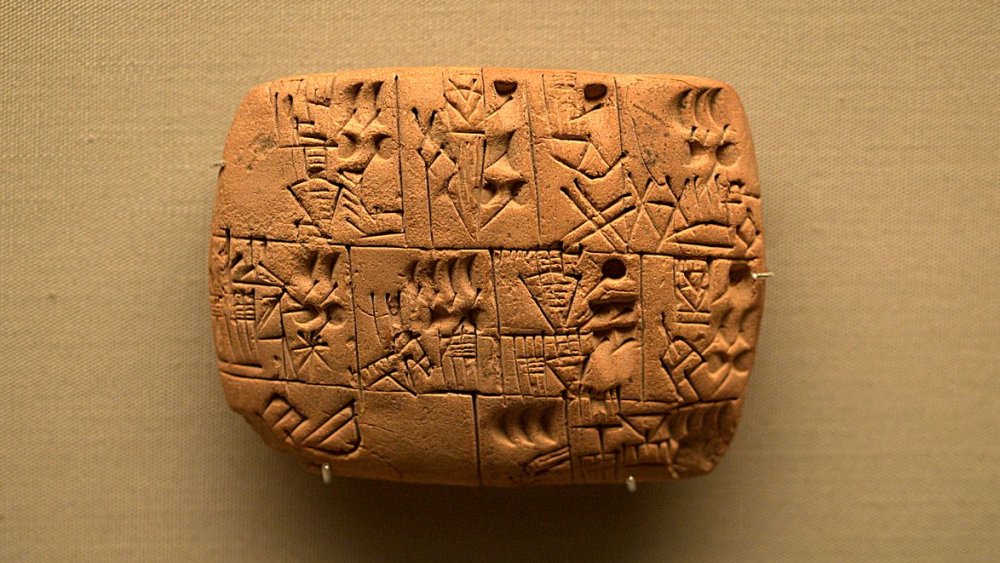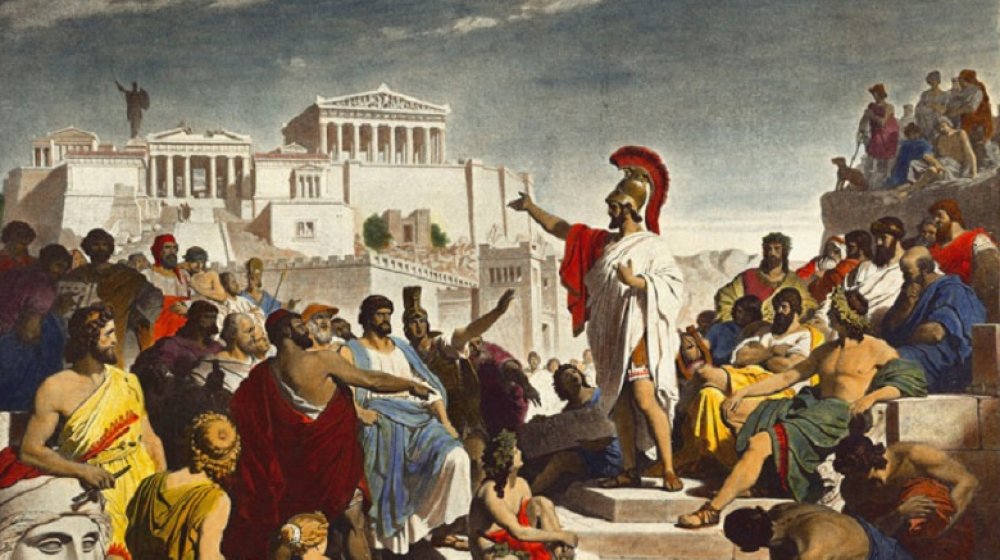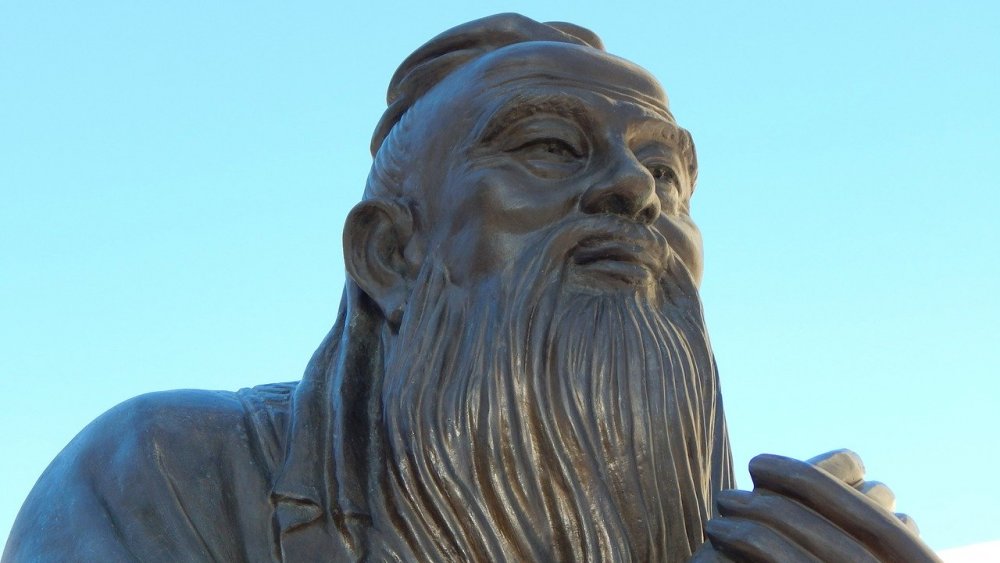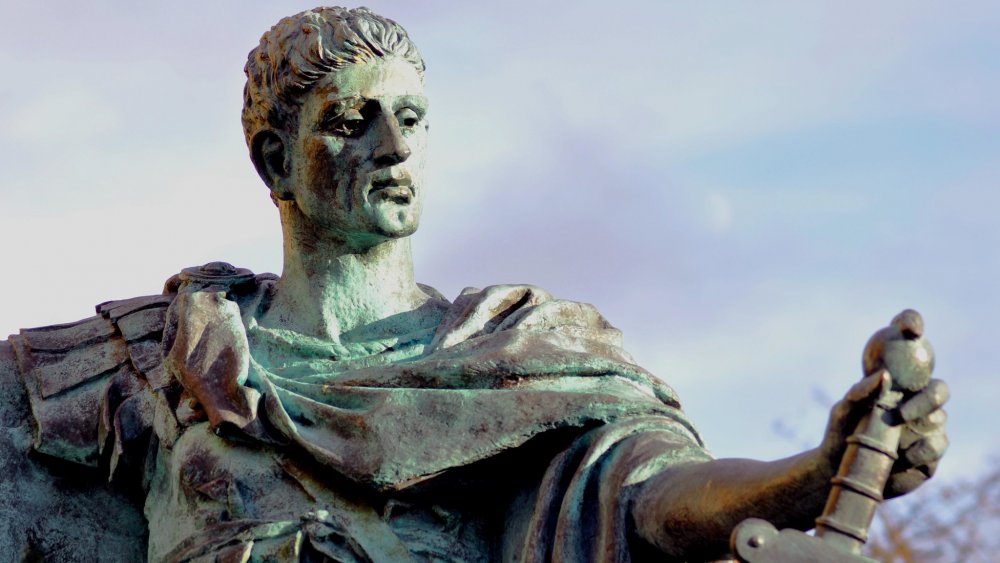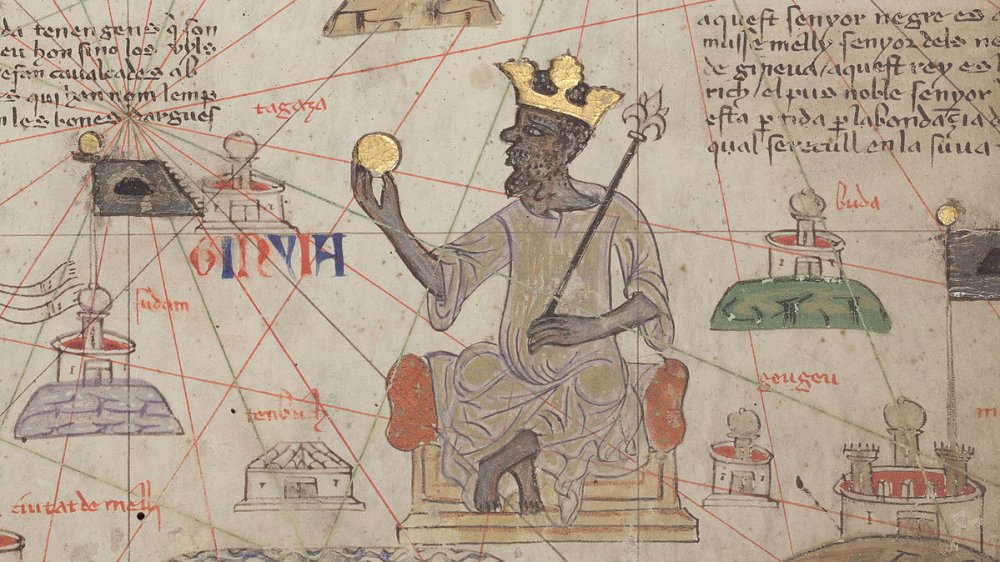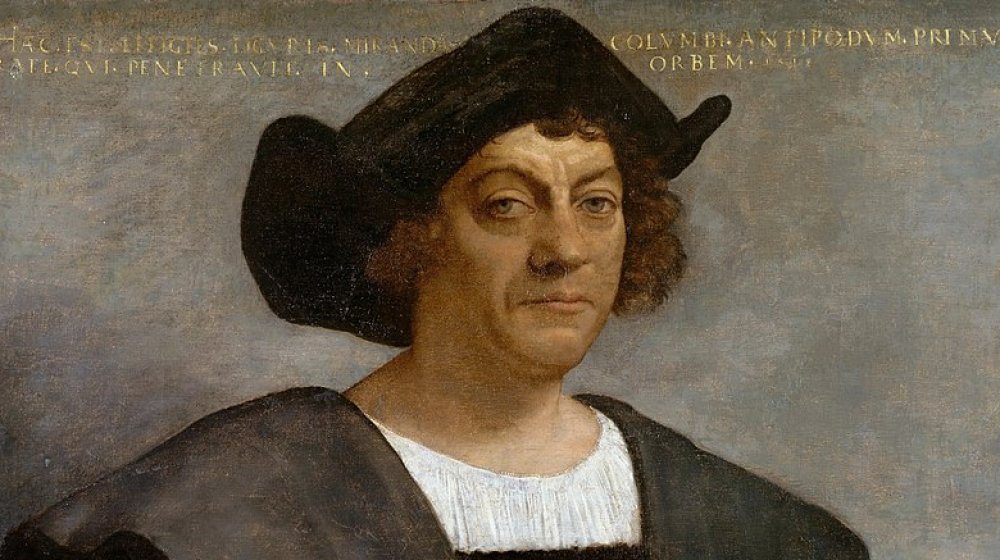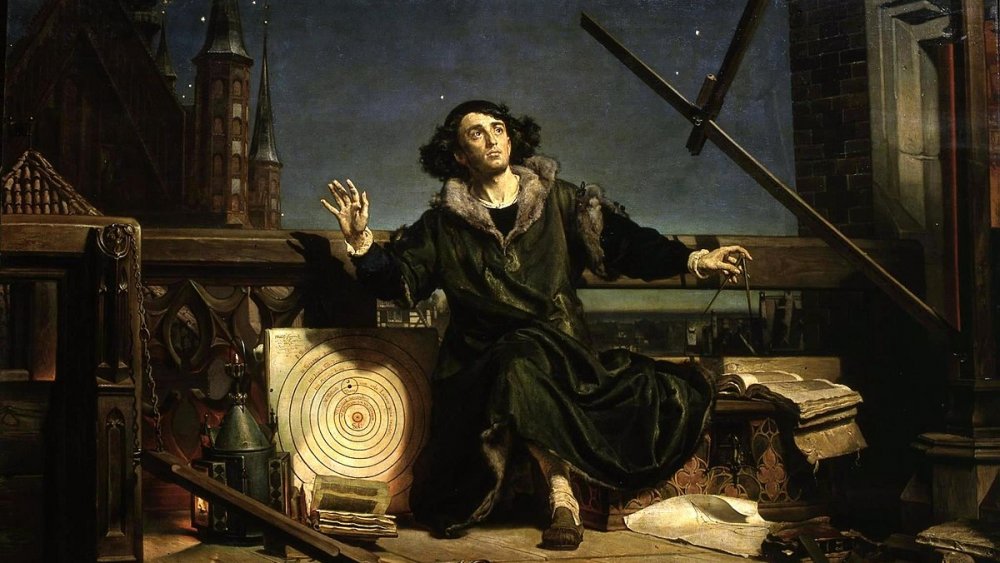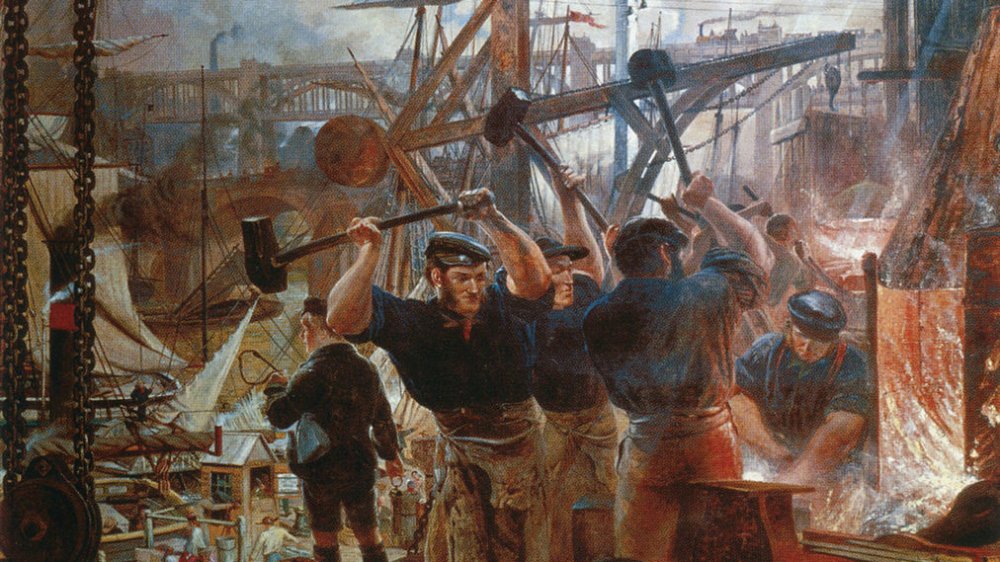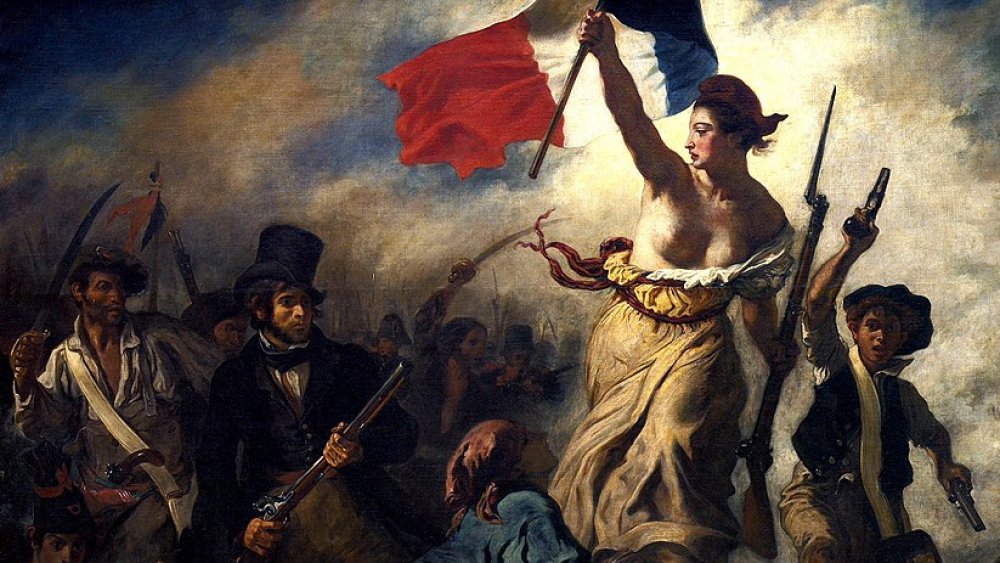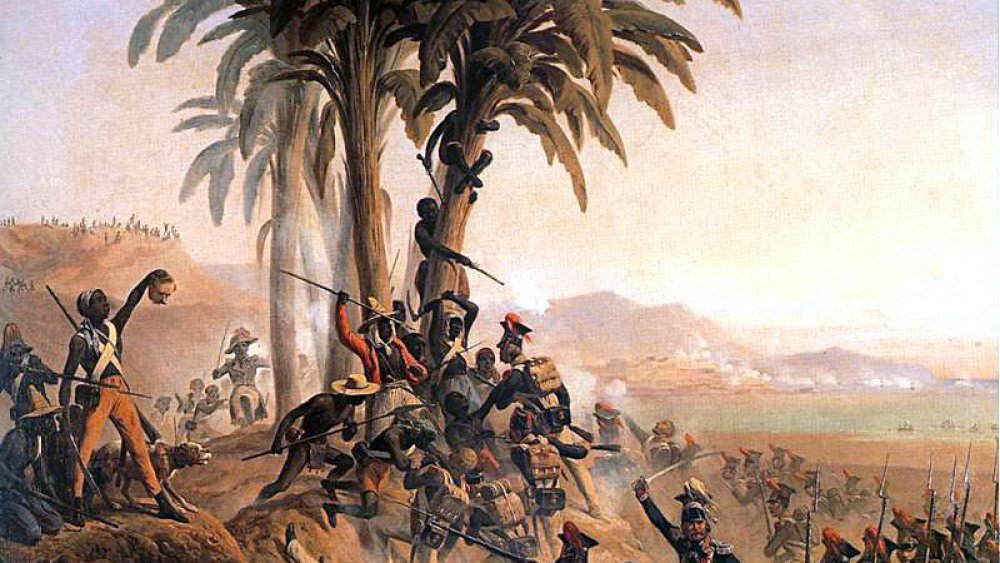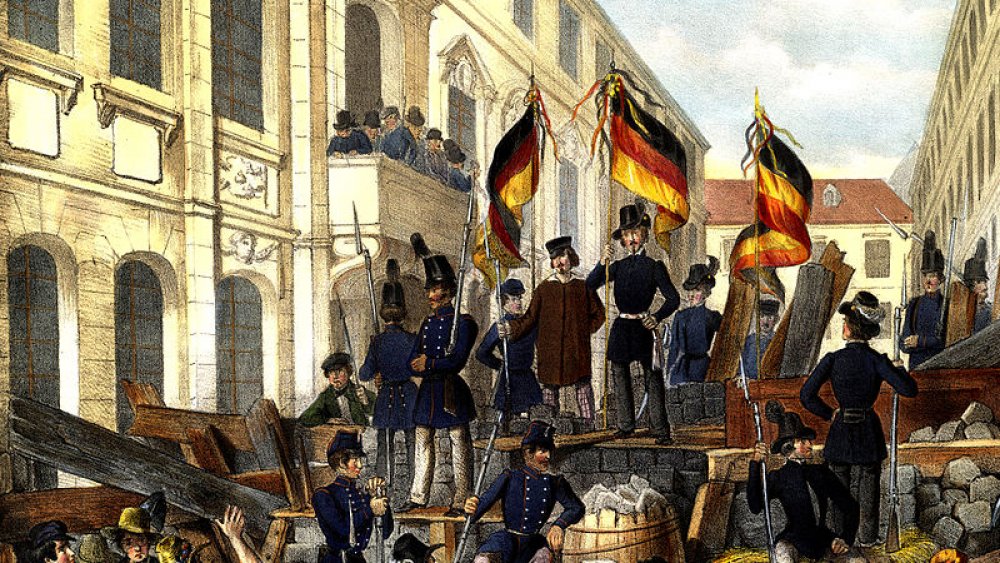Years That Changed Human History
Imagine the whole of human history as a concept album released by a really self-important band. Each year is a track, and each track's style fits its content. So 1929 might be a riotous Jazz track that suddenly ends with the sound of the stock market crashing to Earth. 1969 could be a triumph of rock music and LSD-influenced lyrics; while 1347 (the year the Black Death hit Europe), would be nothing but the groans of dying peasants remixed into a seriously gloomy orchestral piece. And the less said about 1939, the better.
But of all the tracks in this album of human history, what would be the number one hits? The triple platinum years that listeners return to, time and again? These would be the years so significant that they changed the very foundation of what it means to be human. Just like a great song will leave an earworm you might never be rid of, here are the years still stuck in humanity's collective consciousness.
Circa 10,000 BC: The Neolithic Revolution invents civilization
Look, with any collection of "greatest this," or "most significant that" there are some highlights you just gotta hit. The Citizen Kanes of their field. And top of the catalogue on any Turner Classic Moments of History would have to be 10,000 BC, better known as the year humanity decided hunting and gathering was overrated and settled down to become farmers.
Since this was the year that made everything else in this article possible, you could almost call it Humanity: Year One. As History explains, humans settling in the Fertile Crescent to graze cattle and farm chickpeas is what led to cities, surpluses, larger populations, and, eventually, all the stuff we'd call civilization. It also led to the concept of "work" so, y'know, gotta take the bad with the good.
Of course, since the guys driving the Neolithic Revolution didn't also invent writing, we can't say for certain what year this started. In fact, it almost-certainly started in different years in different regions. But, hey, since this first step is absolutely vital, we're just gonna roll with it.
Circa 3,200 BC: Bored accountants invent writing
Man, isn't writing just the best? No writing, and you have no records, no novels, and definitely no amusing websites. But writing didn't just pop into existence alongside language. For a long time, having a favorite story meant having one you'd memorized from start to end. It wasn't until sometime around 3,200 BC that actually recording stuff became possible, and it's all thanks to some long-dead accountants.
As Archaeology notes, it was scribes working in Uruk, present day Iraq, who were the first to make indentations on tablets and say, "Guys, these little drawings actually mean stuff." Known today as cuneiform (pictured), it wasn't quite writing as we'd recognize it. Instead of using shapes to indicate letters, it used a complicated series of pictograms, meaning its audience was limited to other scribes.
Still, it was the wellspring everything else came from. By around 1850 BC, a group of Phoenician merchants had created a system for writing consonants known as abjad. From there, it was just a short, 900 year wait for the Greeks to finally come up with the concept of written vowels (via History).
507 BC: Athens gives democracy its first shot
Winston Churchill once said, "Democracy is the worst form of government except for all the others," but when Cleisthenes of Athens implemented it in 507 BC, he had no idea if it was the best, the worst, or just plain stupid. That's because nowhere else in recorded history had yet tried giving ordinary people a say in how things were done. Cleisthenes was basically running a crazed experiment with Athens as his laboratory.
History has the details. Cleisthenes's reforms were kinda forced on him, but they still wound up creating a direct democracy that lasted almost 200 years. Anyone could rock up to the assembly's frequent meetings and say his piece, and he could just as easily get elected to the powerful council by random lottery. But note the male personal pronouns there. Women had even less representation in Athenian democracy than they do in modern American boardrooms.
In fact, the first recorded democracy undemocratically excluded quite a lot of people. Foreigners weren't allowed to take part, and slaves were definitely out. Out of roughly 260,000 residents of Athens, that left only 40,000 able to vote. It only took humanity another 2,400 years to realize real democracy meant including everyone.
483 BC: Confucius paves the way for all Chinese history
Of all the influencers of history, perhaps none can lay claim to being as influential as Confucius. The teachings of the fifth century BC Chinese philosopher were at the heart of policy making from at least the first Han Dynasty (via Biography) all the way to the fall of the Qing Dynasty – a period of over 2,000 years. Even today, Confucius's ideas so permeate Chinese culture that around 1.4 billion people live in a world he helped shape.
So yeah, Confucius: big deal. But he very nearly wasn't. As Britannica explains, at the age of 56, Confucius grew so frustrated with China's inability to appreciate his work that he stomped off into exile for nearly 12 years. He only returned in 483 BC, at which point he began writing the books that would eventually form his legacy.
That means 483 BC could almost be the Chinese equivalent of the year Jesus returned to Galilee to get his miracle on. Imagine how vastly different the whole of Western culture would be without the New Testament. That's Chinese and southeast Asian culture without Confucius's teachings.
312 AD: Constantine gives Christianity a whirl
The first 300 years of being a Christian were pretty incredibly not fun. After nailing Christ to a cross, the Romans then alternated between just about tolerating his followers, and periodically blaming them for great fires and using them as living torches. This culminated in Diocletian deciding in 303 to try his hand at persecution, and nearly smashing the religion to smithereens (via Britannica).
But fast forward just a decade, and Christianity wasn't just legal, it was one of the empire's favored religions. The reason? Emperor Constantine had decided to convert (via Biography).
Constantine's conversion is kinda controversial today, as its unclear how serious he really was about Christianity. Britannica says "very serious" and the BBC says "not serious at all." But even if it was just PR, Constantine's 312 switch from paganism still changed history. Christianity became the religion of the most-powerful empire on Earth, the Church became rich, and the stage was set for Europe's next 1,700 mostly-bloody years. Err... yay?
661 AD: Islam suffers its messy break-up
When the Prophet Muhammad died in 632 AD, he died the guy who'd managed to unite almost the whole of Arabia under his new religion (via Britannia). Unfortunately, he also died a guy who'd failed to name a successor. Almost immediately, two candidates presented themselves. One was Ali, married to Muhammad's favorite daughter, and favored by the group we'd now call the Shiites. The other, favored by the Sunnis, was Abū Bakr. When Bakr finally got the top job, it marked the beginning of a divorce that would divide the entire Islamic world.
NPR has the story. Although Ali managed to become the fourth caliph, his selection sent all this mutual resentment bubbling over into war. After Ali was assassinated in 661 AD (pictured), it crystallized for many of his followers that the Sunnis were absolutely not to be trusted. It took a while to all come together, but eventually the Islamic world split permanently into Sunni and Shia.
While the two sides sometimes got along, they often didn't. In the modern world, the Sunni-Shia split has been at the heart of much of the crazy violence engulfing the Middle East.
1324: The world learns of the Malian Empire
Imagine the richest person you can: the sort of terrifying, feathered hybrid that might emerge if you forcibly cross-bred Jeff Bezos with Scrooge McDuck. That eldritch, quacking nightmare is probably about one percent as wealthy as Musa I of Mali. As the BBC describes, Musa was the medieval ruler of the West African Malian Empire at a time when that empire contained half the world's known gold reserves. Oh, and all this gold belonged personally to him.
Rich as Musa was, it's what he did with that wealth that makes him notable. In 1324, Musa left his empire on pilgrimage to Mecca. According to Smithsonian, he splashed his immense wealth so much as he passed through Egypt that he single-handedly crashed the economy.
The news of Egypt's woes sent shockwaves through Europe and Arabia. For centuries, people there had regarded Africa as a place of savages. And now here was an African leader whose spare change could overwhelm their civilizations. As Ancient History Encyclopedia explains, this led Europeans to start exploring West Africa – for better and (mostly) for worse.
1492: Columbus reaches America, claims it for Europeans
Oh, hey, look. Another historical greatest hit, only one that today comes with more baggage than watching Birth of a Nation or dancing to Gary Glitter. On October 12, 1492, Christopher Columbus landed a ship in the Bahamas, discovering the New World for Europeans. A few decades and a whole ton of smallpox later, and the fate of the Americas was sealed.
History has the details, just in case you'd recently received a traumatic head injury and forgotten the whole of your elementary school education. Columbus was trying to chart a route to East Asia, which would've enabled the Spanish crown to get filthy rich through trade. Instead, he accidentally bumped into America, allowing the Spanish to instead get filthy rich through plundering and looting. Not that Columbus was aware of the detour his expedition had taken. He left the Americas convinced Cuba was China, and Hispaniola (the island Haiti and the Dominican Republic today share) Japan. Oh, and he brought a bunch of "Indian" slaves back with him, because that's just how things rolled in the fifteenth century. Whoo! 'Murica!
1543: Copernicus decides science is now a Thing
The general rule of revolutions is that they will, at some point, involve chaos and Frenchmen chopping off one another's heads. That's why the Copernican Revolution is so pleasing. It brought order from chaos, and contributed to not a single case of decapitation (although it did involve at least one guy getting burned at the stake [via CSM]).
NASA has the story. Since the days of Aristotle, it had been taken for granted that all the bodies in the heavens orbited the Earth, even becoming an official part of Church doctrine. In 1515, Nicolaus Copernicus figured out this was a load of bunkum, and that the Earth was just another planet orbiting the sun. This idea would kickstart the entire concept of modern science.
Unfortunately, Copernicus was so shy about his theory that he didn't show it to anyone for almost 30 years. It was only on his deathbed in 1543 that he made his idea public. Sure, that meant he didn't get burned at the stake, but it also meant humanity spent three unnecessary decades looking like dumbasses.
1760: The Industrial Revolution makes everything better
Let's just get this out of the way: there's no definite start date for the Industrial Revolution. 1760 is the commonly accepted year, but it's kinda arbitrary and varies depending on regional factors. But whether it was 1760, or 1761, or even 1770, it's a year that can't be left out. That's because, once the Industrial Revolution hit, the whole of humanity got a planet-sized injection of good news.
You might be picturing Victorian slums in London wallowing under thick black clouds of soot and thinking, "Err... good news?" Well, just check out this graph from Vox. By plotting all the good stuff (like percentage not living in poverty, or total life expectancy) against the passage of years, you get a whole bunch of lines that start out mostly flat, then suddenly go bananas around 1760.
That's because the arrival of the Industrial Revolution transformed the lives of everyone on the planet. As technology improved, the gains and riches it brought surpassed comprehension. Today, the average person's life is more comfortable than that of a fifteenth century pope. Suck on that, Innocent VIII.
1789: The French Revolution changes society, removes a ton of heads
Did you know the terms left wing and right wing come from the French Revolution? (via Time). We mention that just to give you some idea of how vastly this one revolt influenced the entire world. But its influence didn't just stop at gifting us useful vocabulary. The revolution gave us the metric system (via BBC); the Napoleonic Code, still the basis of many legal systems; and even the baguette (OK, that one's less important, but still). Basically, it was kind of a big deal.
On a global scale, the changes were even crazier, and not just in the sense of championing liberty, equality, and fraternity. The Revolution led to the rise of Napoleon, whose mucking about in Spain directly triggered Latin America's wars of independence (via Britannica). It also led to the Louisiana Purchase, basically doubling the size of the United States. And that's just a tiny fraction of the stuff that sprang from the Fall of the Bastille. If this had been written up as a top 10 list, this entry could've been gifted the #1 spot.
1804: Haiti has the only successful slave rebellion in history
Wherever there have been slaves, there have been slave rebellions. But while some managed to be successful in the short term (stand up, Rome's Servile Wars), they all wound up getting crushed in the end. With one major exception. In August 1791, a slave uprising exploded in the French colony of Saint-Domingue. Hundreds of thousands of slaves attacked mansions, slaughtered white families, and burned sugarcane fields. Nearly 13 years and countless deaths later, Saint-Domingue declared independence, becoming the new nation of Haiti (via Slate).
Although many expected France to retake the colony, the Napoleonic Wars kinda got in the way and, by the time Paris had recovered from the Seventh Coalition's epic smackdown at Waterloo, Haitian independence was just kind of a thing.
The importance of this can't be overstated. Haiti was the first independent black nation in modern history (via BBC), and the second New World colony to throw off its European shackles. It also put the wind into the sails of the abolitionist movement. By 1807, public pressure had forced the British Empire to abolish the slave trade in its dominions. Thanks, Haiti!
1848: Speeches and nationalism reshape Europe
Ho boy, are we excited to talk about 1848! A year so bananas it laughs in the face of recent 12 month monkey houses like 2016, 1848 was the year the whole of Europe went into revolutionary meltdown. France, the German Confederation, Austria-Hungary, Prussia, and Italy all detonated with the force of atom bombs. In just 365 short days, the entire European order was nearly pulled down, and the empires of the past replaced with the nation states of today.
Nearly... but not quite. As Britannica notes, the 1848 revolutions are famous today for all failing in some way or another. Even France, which got rid of its royal family for the second and final time, wound up replacing them with the empire of Napoleon III.
So what, you might ask, is 1848 doing on this list? Well, the revolutions might've been crushed, but the genie of nationalism they released transformed the late 19th Century. When Bismarck unified Germany, for example, he was consciously trying to redo 1848, but with a conservative twist.
1957: Sputnik shows us the final frontier
It was only the size of a beach ball, but Sputnik 1 had a similar level of impact on history as the Chicxulub asteroid had on prehistoric Earth. On October 4, 1957, the USSR beat Washington to the punch by lobbing the first man-made satellite into orbit. As NASA describes, it was a technical achievement that changed the course of civilization. Suddenly, the Cold War had found a new, far-less deadly front to be fought on. Instead of stockpiling nukes like crazy, the USSR and USA found themselves locked in the longest-distance race: the Space Race.
The list of firsts that followed on from Sputnik's launch is incredible. In 1959, the Soviets landed the first probe on the Moon. In 1960, they brought the first animals back alive from orbit. In 1961, Yuri Gagarin became the first human in history to enter space. It wasn't until 1969 that the Americans stopped dozing and placed a man on the Moon. Think of every time you today use a satellite in some way (hint: it's every day). Now thank 1957 and Sputnik 1.
1991: The first web page paves the way for the 21st Century
Given the revolutions, wars, and discoveries we've covered so far, one British dude posting one web page might seem a little... anticlimactic? But what happened on August 6, 1991 was perhaps the most groundbreaking moment of all. That British dude was Tim Berners-Lee, and his web page (above) was the first in human history (via History).
This wasn't the same as Berners-Lee just setting up a Geocities site, and posting spinning gifs of his cat beneath the caption LOL. To get this one website up, he had to basically invent what we experience as the internet. Let's see if you recognize these acronyms: http, html, url. All those things had to be created from scratch by Berners-Lee, alongside a basic browser and proper server software. The fact you're reading this article? Well, you can thank summer 1991 for that.
The crazy part is, Berners-Lee refused to patent his invention. He insisted upon it being free. Just think, if this one Brit had gotten just a little greedy in mid-1991 we'd now have no memes or flamewars. It doesn't bear thinking about.
